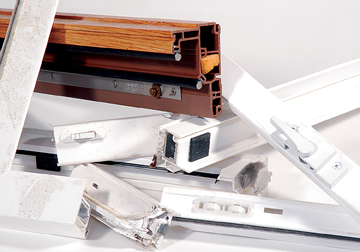Recycler Trades Up to Stay on Cutting Edge
Published: August 6th, 2009
plasticstoday.com
When your motto is “Scrap everything you think you know about unusable plastic,” you had better be able to tackle the hard recycling jobs. Plastics recycler Butler-MacDonald Inc. (Indianapolis, IN) says recent machinery investments are helping it do just that. Last year, in fact, was the 65-employee-strong company’s most profitable in its 27-year history. Its customers include plastics compounders, telecommunications companies, and producers of CDs and DVDs, aeronautical and automotive parts, vinyl siding and windows, PET bottles, and pharmaceuticals. Some customers buy back the purified polymers from their own recycled waste.
“If something plastic-based is hard to recycle, that’s where we come in,” says J. Scott Johnson, Butler-MacDonald’s president, CEO, and chief system designer. “If something is easy to recycle, people don’t usually think of us.
Butler-MacDonald's new SMS 80/120 granulator from Herbold
Meckesheim has helped it increase itsavailable capacity and drop
its labor costs.
But that, too, is changing. As people do more and more recycling, digging deeper into the pile, if you will, they’re ending up with more difficult things to recycle. So that’s where some of our growth has come from—difficult work is our forte.”
For example, a company that sells thermoplastic olefins had an 80,000-lb batch rejected by its customer because it was contaminated with nylon and thermoplastic polyurethane (TPU). Butler-MacDonald showed that the nylon and TPU could be removed economically. It saved the client from a damaged reputation and a significant loss by delivering a 91% yield of TPO at a purity level acceptable to the client’s customer at the original sale price. The client kept its customer and still made a profit on the batch.
When Johnson saw that his company’s increasing business was going to require another large granulator, he spent more than a year shopping for a new one. “We put things in a granulator that other folks don’t want to put in a granulator,” he explains. “Because we are trying to take plastic recycling to new levels, we’ve made sort of a science out of understanding how granulators work.” He settled on an SMS 80/120 granulator from Herbold Meckesheim Gmbh, which designs, manufactures, and installs size-reduction equipment and wash line systems for the plastics industry, specializing in equipment for the recycling of industrial and post-consumer plastics.
The German manufacturer was not well represented in the U.S. Midwest until 2007, when Dave Cortner of Jeda Equipment Services in Indianapolis picked up regional representation of the Herbold product line. Cortner arranged meetings for Johnson first with David LeFrancois, head of Herbold’s North American operations, and then also with Karlheinz Herbold, co-owner of the company. Herbold had his company design the new granulator to Johnson’s specifications, which included adding a special metal-detecting feed conveyor, and at a price tag that reportedly was lower than domestic manufacturers. Installation was completed in mid-2008. The new unit’s fast evacuation of granulated plastic helps output of 8500-9000 lb/hr, higher than another similarly sized granulator already installed at the facility. Johnson says, “We base our pricing on hours, so our labor cost has dropped to about 60% of what it used to be, across the board. And now we have time to take on more business.”
The rotor and bed knives of the SMS 80/120 reportedly can be removed easily and adjusted quickly in a fixture outside the granulator. Interchangeable screens are available to help control the size of particles coming out of the granulator. And whereas an older granulator in the Butler-MacDonald plant requires up to four knife changes (and sharpening of the knives) per week when running near capacity and processing abrasive materials—which can translate to as much as 800 hours of downtime per year—the new unit’s knives are made of a more durable alloy and are ground at a different angle, so that they usually require only one change per week, for an annual total of about 200 hours of downtime.
The recession also has hit his firm, and Johnson says he cannot expect 2009 to be another record year; indeed, the company has had to fire some of its customers for nonpayment. However, new markets are developing, due in part to the recession-induced shutdown of some Chinese facilities to which some U.S. producers used to sell plastics waste.
 Butler-MacDonald uses its new equipment to recover
Butler-MacDonald uses its new equipment to recover
plastic from various mixed-waste streams, including
this post-production scrap from a window manufacturing
plant.